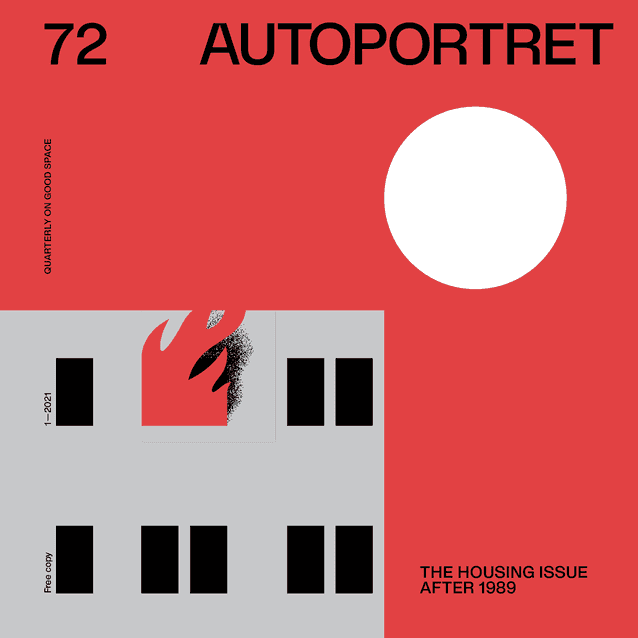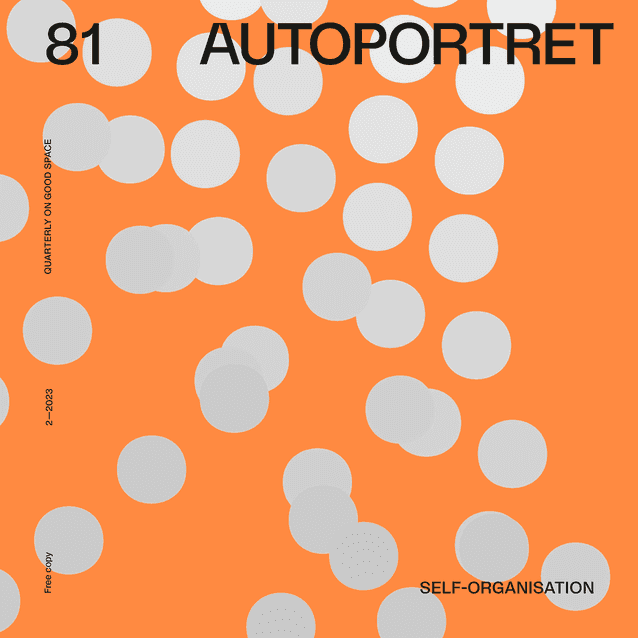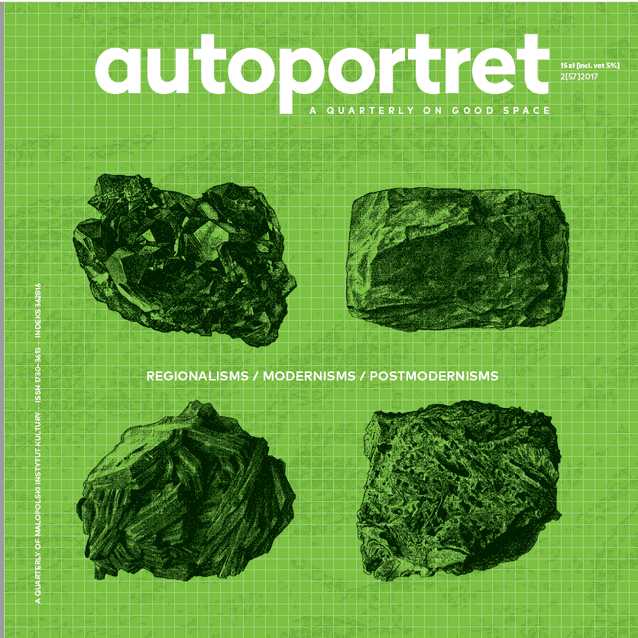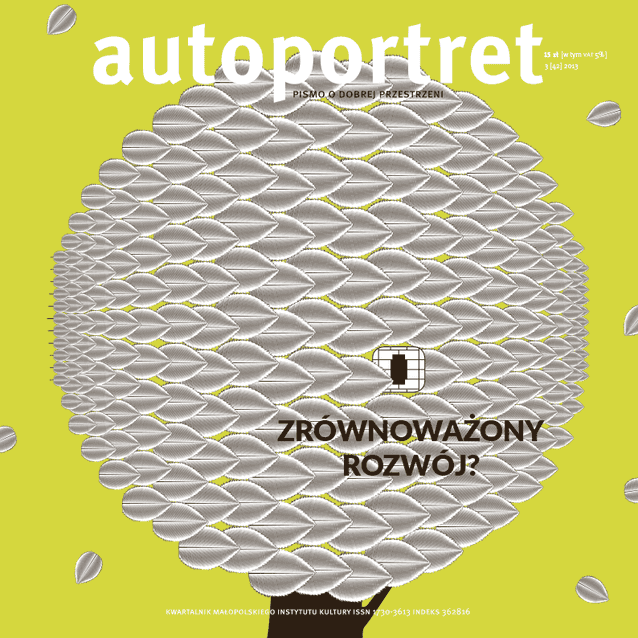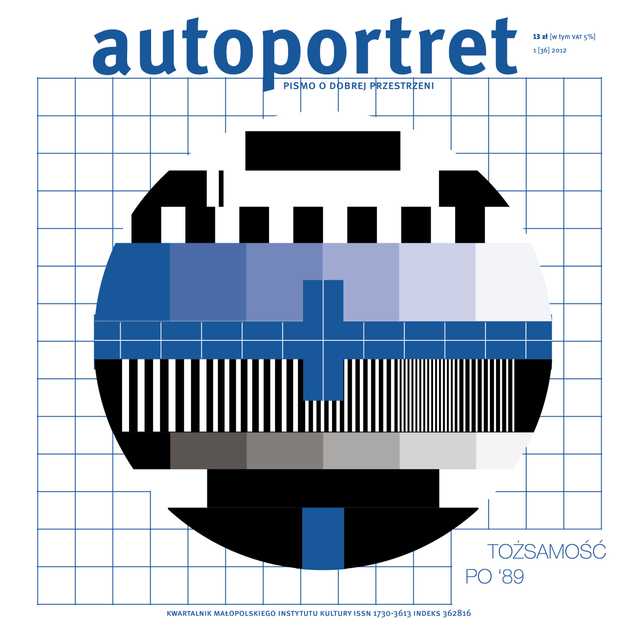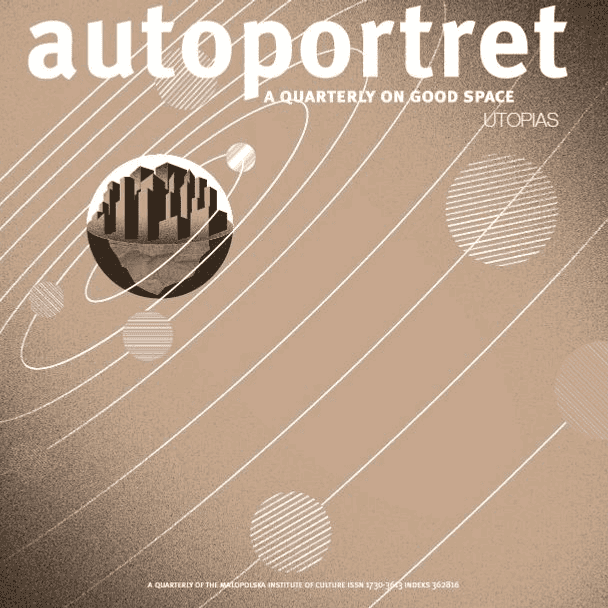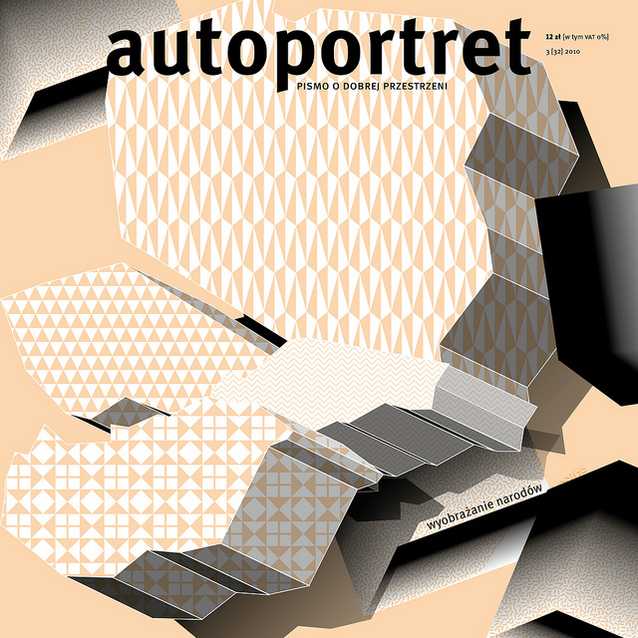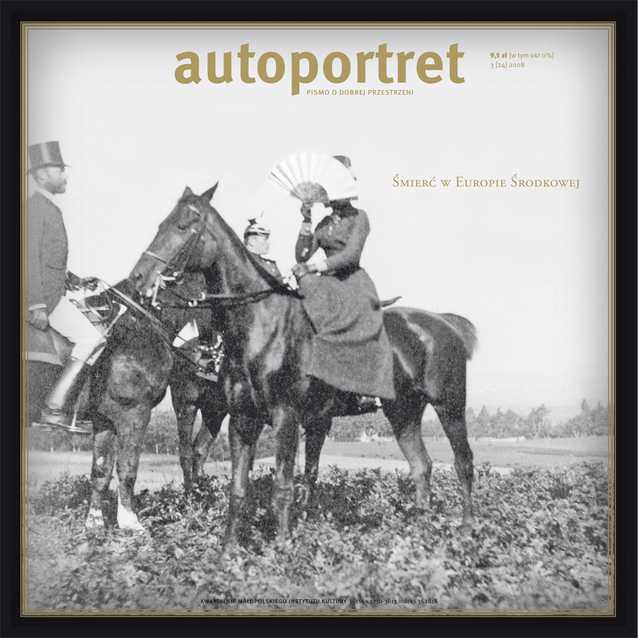They imagined they would own their apartment; instead, they struggle to earn enough to make the rent. The post-November politics is to blame,[1] because it has excluded housing from the realm of public interest. It has dug deep trenches, dividing people, and making it impossible for them to communicate – even to this day.
“If the price of ham increases, we can do without ham, but if housing prices rise sharply, we cannot give that up overnight,” admitted Prime Minister Václav Klaus in an interview for the “Respekt” weekly in 1993. Meanwhile, the next twenty-five years of non-existent housing policy showed how easy it is to render housing an inaccessible commodity, in an instant.
For almost one hundred and eighty thousand people affected by the housing crisis, their own apartment is something resembling luxury ham. For the next generation, it can become so in the near future.
After the revolution, young families were not sure whether they would be able to get their own apartment, although the power elites at the time unanimously promised them that they would; today, many people abandoned the hope. The longing for private property is still strong, despite the fact that the present generation is approaching it with growing reservations.
In the past regime, people started the family and waited for their dream apartment. In the contemporary regime, people work to obtain creditworthiness and then to be able to start a family. The system gives them the promised freedom for a limited time: they can leave their family home and live for a few carefree years in a flat rented together with other people. Then comes the uncertainty, which even the mythical “million from the parents” will not alleviate.
And yet, the same parents in the years after the revolution justified the succession of housing problems and confusion with the phrase “We are doing it for our children’s sake.” For whose sake, then, was the housing policy pursued (or rather not pursued) over the last twenty-five years?
The State should not interfere
The Czech post-November housing policy is a story of minor and major injustices. In the short term, they resulted in commonplace conflicts between people; in the long run they strengthened the already deeply entrenched distrust towards the State, and added to the general frustration of the day.
Everyone knows at least one instance of injustice where someone got too little or nothing while someone else gained too much. Our views as to why and how this happened may differ, but the experience of injustice is universal. It continues to accompany Czech society to this day.
To look at the events of the 1990s and the first decade of the twenty-first century only through the prism of the open conflict between the old regime and the new ideology, or between tenants and owners, would be a gross simplification. The opposing interests obviously influenced the direction of the public and expert debate, and even plainly shaped it. However, we can look at these events as a chain of mostly bad decisions, made out of ignorance, reluctance, and indifference on the part of post-November politicians.
At the same time, it must be admitted that the State did not have enough leeway to play any significant role in the emerging housing policy. The need to get out of the all-embracing State control – symbolized by the hated waiting lists for housing allocation – was accompanied by a new notion, formulated with the advent of the neo-liberal ideology: “Let everyone take care of their own housing”.
In short, housing was considered an individual’s business. It would be best for everyone if the State stopped intervening in this area. The view spread from the 1980s onwards all over the Western world. The Czech Republic jumped on the speeding train of this ideology, but, unlike most Western cities, it has not got off it to this day.
Almost immediately after the revolution, the State withdrew from the management of housing resources. Some were privatized, the rest was handed over to municipalities, and in some cases to enterprises, which later got rid of the donated apartments, anyway. Contrary to other post-communist countries, the Czech Republic did not enact any general regulations to standardize the procedures of municipal authorities and at least ensure fairly equal conditions for all.
If the State supported anything, it was primarily the transfer of housing into private hands – in the form of construction loans or mortgage loans; in the first post-revolution years such financial aid was unanimously called for. It was not fathomed that any one group of people would “fall out of” the housing market. Nobody considered social changes, such as migration to larger cities in search for work, or the increase in the number of people living alone. Thus, the State stopped providing housing not only to people in the most difficult economic situation, but also to those who migrated to cities.
Housing policy, which would deal with who has housing needs and where, virtually ceased to exist. The matter was left to the workings of free market. The State confined itself to supporting the latter, and to regulating issues related to the legacy of the past regime. The activities covered three key areas: restitution, privatization, and deregulation. Today, hardly anybody is satisfied with the course those activities took.
Re-privatization: one got a tenement house, and the other got nothing
In April 1991, a process began that had no analogies in any of the former Eastern Bloc countries: namely, the restitution commenced. A bigger share than elsewhere had been nationalized, and more radically so. Other countries of the Eastern bloc, with the exception of Estonia, mostly paid some compensation to the expropriated owners; here, property nationalized after 1948 was simply returned to its original owners or their heirs.[2]
In practice, thanks to re-privatization, a new segment has emerged, namely, private rental. In the centre of Prague, this covered as much as 70 per cent of the housing market. Most people, especially in the 1990s, accepted this state of affairs and agreed with it, and its costs were borne by tenants of flats in houses returned to their previous owners. In the past regime, they used to live in State-controlled apartments. They had certain – even if limited – rights, for example the right to exchange one flat for another. After re-privatization, private owners replaced State control, and the protection enjoyed by tenants was even weaker than that guaranteed by today’s rental contracts. The tenants have irretrievably lost their privileges, and have never received any compensation in return. The owners created a new group of stakeholders and, under the banner of protecting private property, they demanded the right to freely increase rent or evict the tenants.
Of course, it would be false to claim that all former owners mistreated their tenants after their ownership rights were reinstated. After all, we do not even know how many of these people maintained the ownership, and how many sold their property. It is no secret, which streets in Prague belong to influential foreign groups (or the mafia), but there is still no data on the scale of property sell-off in the capital.
Although initially the re-privatization was hailed as “morally justified”, soon cases of tenants being pushed out without mercy (for example, by cutting off their power supply) changed this picture. From the discourse on redressing the wrongs of the past, public debate has shifted towards conflicts between landlords and tenants.
Deregulation: one lived cheaply, and the other did not
Those who had to use the real estate market after the revolution had a tough time of it. Mortgage loans were still essentially non-operational, interest rates in relation to purchasing power were unsustainable, and there was a shortage of housing available to rent. Young people just gaining their independence in cities found themselves in a particularly difficult situation. Many of them blamed this on rent control.
For example, in the districts of Prague 1 and Prague 2, the number of flats decreased by almost 6,000 between 1991 and 2001. If a flat for rent became available on the market, it was taken immediately. Inadequate legal protection combined with the pressure of private capital forced the owners of rental flats to change the designation of the property from residential to another. The city centre was transformed into an office space because renting offices brought much higher profits than the controlled tenant’s rent. Therefore, many owners tried to arrange for their tenants to take another flat or even evict them without any compensation.
In their defence, the owners cited regulations concerning controlled rents, which were much lower than the market value. Some of the flats reinstated to the owners had been badly damaged, and the renovation required considerable financial outlays. Therefore, some owners sold their property, and others decided to sublet it to companies, foreigners, or new tenants.
When re-privatizing real estate, the State did not take these problems into account, and then, when they happened, made no attempt to eliminate them. Deregulation was meant to be the solution. Rents were gradually increased, and in 1995 a directive segregating tenants into two groups came into force: those who signed contracts earlier benefited from the controlled rent; but it no longer applied to new tenants. “If the gradual rent increases were adhered to, they could have been regulated more fairly, according to income,” recalls Stanislav Křeček, longtime president of the Tenants’ Association.[3]
In his opinion, the 1995 directive created a two-track system and compromised the essence of the regulation: it did not serve those in need, but only benefited the tenants who had already signed a contract. Its costs were borne by the generation of “Husák’s children” entering adulthood.[4] “We’d had controlled rents for ninety-five years. Very few people realise that this was not an invention of the communist regime. Rent control was already in force during the First Republic,” Křeček explains.
All those who criticized deregulation at its various stages did so with the situation of the most deprived people in mind. “We knew we had to increase the rents, but not in such a way that it would ruin part of our society,” recalls Táňa Fischerová today. When she was an MP, she severely criticized the 2005 law, tantamount to terminating rent control. At that time, about eight hundred thousand households benefited from rent-controlled housing. “I believe this is the greatest harm done during the whole length of my political career. After all, nurses and pensioners must also live in cities,” adds Fischerová tartly.
In their analyses, already back then, experts agreed with Fischerová’s diagnosis: they indicated that the complete abolition of rent control made many households vulnerable. Housing benefits were too low, and increasing them in line with the new rates of rent would burden the State budget excessively. Furthermore, even if all council flats were allocated to people threatened with eviction, it would still not be enough. The situation was particularly dire in Prague and the South Moravian country, where the highest increases were expected. Ultimately, in some districts of Prague, rent control ceased to apply as late as 2012, and not – as originally predicted – in 2010. Experts also pointed to the risk of ghettos developing in areas affected by high unemployment.
At the time, ecologist Milan Smrž lived in a tenement house on Truhlářska Street in Prague. He remembers the soaring rents. “We used to pay two hundred dime. Clearly, this rate was unsustainable in the long run, but in the last phase of the rent increase, it went up by CZK 5,000 during one year. This was far beyond the financial capacity of many households.” In 2003–2005, Milan Smrž was a councillor in the Prague 1 district and a member of the local movement, which warned against the effects of deregulation and even organized street protests. “We feared that this would harm the weakest, so we wanted to at least slow down the pace of rent increase and compensate people in the most difficult economic situation,” he explains.
He does not mention a possibility of the deregulation being completely rejected. He perceives the movement’s activity at the time as an attempt to mitigate its negative effects. He realised that the system was creating more injustice as people benefiting from rent control were in a more privileged position than those in the commercial market. Yet members of the movement were unpopular. “We were not only against deregulation, but also against privatization,” he says with a smile.
Privatization: one has always owned a home, and the other has never owned one
“We wanted to hold a local referendum on the distribution of profits from privatization equally among those who were not able to buy a flat,” recalls Smrž. “The allocation could reportedly amount to several hundred thousand Czech koruna per person. I was putting up leaflets in re-privatized tenement houses, but most of the owners threw me out the door. Why? After all, it would also be in their best interest if the tenants had more money.” Even now, years later, he shakes his head in disbelief.
The movement did not like the fact that Prague 1 was getting rid of valuable real estate for next to nothing. The prices of the privatized flats ranged between two hundred thousand and three hundred thousand koruna. Above all, however, the movement drew attention to the obvious inequity: some had the opportunity to buy a flat cheaply, while others did not, because the flats in which they lived were given to the former owners or their heirs.
Restitutions turned residents into ordinary tenants in the commercial market, while privatization extended the quasi-ownership rights of the past regime. The tenants of the houses nationalized after 1948 were simply unlucky. Many of them invested in the apartments they lived in. If they were reinstated to private owners, in principle, all these expenditures were lost.
In some ways, privatization reproduced the growing inequality. Those who had a good standing in the past regime, thanks to which they managed to get an apartment, for example, in Vinohrady, were able to buy it very cheaply, almost instantly. On the other hand, disadvantaged people living in controlled-rent flats were afraid of privatization because they would not be able to afford the buyout
– explains Jan Sládek, a sociologist and housing expert.
There were urban legends about the buyout of flats. “A bloke in a suit, with a briefcase, would come to visit an elderly man, and offer to buy the apartment on his behalf and let him live in it until his death.” In this way, fraudsters were capitalizing on the fear elderly people had of being evicted. In most cases, however, flats were purchased by their actual tenants.
This is also confirmed by Smrž. In his opinion, the problem lay rather in the method of appraisal: the value of the flat was determined on the basis of the square footage; the location was not taken into account. By this token, for the same price, some obtained an apartment in a prestigious neighbourhood that would be worth much more on the free market. “We wanted to block the sale of flats by the new owners for a certain period of time,” he explains. Sládek believes that there was no way to do that: property rights were only just being extended, and any such limitation would be unthinkable.
Even greater differences than those within one district were visible between municipalities. Each municipality and each district independently determined the terms of property sale. In some places, everything was privatized, such as in Teplice under Jaroslav Kubera’s administration. In other places – for example in Brno – only part of the housing stock has been privatized. The prices and the pace of the process were also different.
According to Sládek, the ubiquitous reluctance towards centralization stood in the way of the common housing policy. “Towns have also clearly decentralized, one could even say that they have become fragmented. The regional level would be ideal for creating a housing policy, but appropriate agencies or offices probably did not even exist.” Today, the municipalities, which retained some housing resources and completed the privatization process, are now mostly satisfied with the decisions they made. They understand that an increasing number of people cannot afford housing in the commercial market.
Another problem is that many municipalities have not reinvested the money obtained through privatization into housing projects. According to Sládek, we must also remember that they often lacked sufficient funds to renovate houses and flats that were in poor condition. They simply had to get rid of those.
“Nobody questioned the need for privatization. Still, people had good reasons to be outraged at the way the transformation proceeded. Politicians tried to appease them by granting apartments,” Sládek recalls. Milan Smrž adds: “Here, in Prague 1 district, people universally agreed: everyone was in favour of privatization except us.” Experts from other post-communist countries, even Hungarians, who are still paying the price of privatizing most of their housing, were unable to imagine a different path.
On the verge of a new crisis
Privatisation, restitution, and deregulation proceeded in the name of neoliberal ideology. According to the latter, the free market will always solve all problems in such a way that all parties are satisfied. In the post-revolution years, few people thought that the effects of the market forces also resulted in unforeseen, far-reaching consequences. A typical example thereof is the sharp increase in inequality of access to housing.
Simply put, it is not in the owners’ interest to seek solutions to this situation, because they make profit from the high and constantly rising prices and rents. Thanks to their economic advantage, they gain more power in society than those condemned to renting on the commercial market.
Owing to the ideological belief in the market, no one paid any attention to the processes and problems faced by the cities in the West, the more so as these problems did not penetrate into the public debate. Only later did we begin to be aware of the phenomena of gentrification, privatization of public space, or the growing areas of exclusion.
We just had to “deal with it” in the 1990s. In the face of the so-called large privatization, the housing issue was pushed into the background, and its importance notwithstanding, it continues to remain there still. Let us recall that until recently the media was uninterested in the housing situation of people in the Ostrava region, for instance.
The RPG apartments are perhaps the best example of a failed privatization.[5] For years, the entire region had been absorbed with the righteous anger caused by this scandal. Anyway, who would trust politicians who are unable to provide for one of the basic human needs, not only for the weakest individuals, but even for the middle class as well?
Ultimately, there is no difference between those who criticize the State for the lack of council housing, those who are distressed by high property rental prices in Prague, and those who were promised their own apartments but got nothing. A roof over one’s head is a basic right, but also our greatest concern in life, and our biggest investment.
If we are uncertain whether we will make the rent, or whether we will be able to save enough for our own contribution and then pay off the loan, we lose our main anchor in life. More and more people today find themselves in this position.
Restituce, privatizace, deregulace: a politika bydlení je v troskách by Gaba Khazalová was originally published on Deník Referendum website. We thank the author for her permission to reprint the text.
